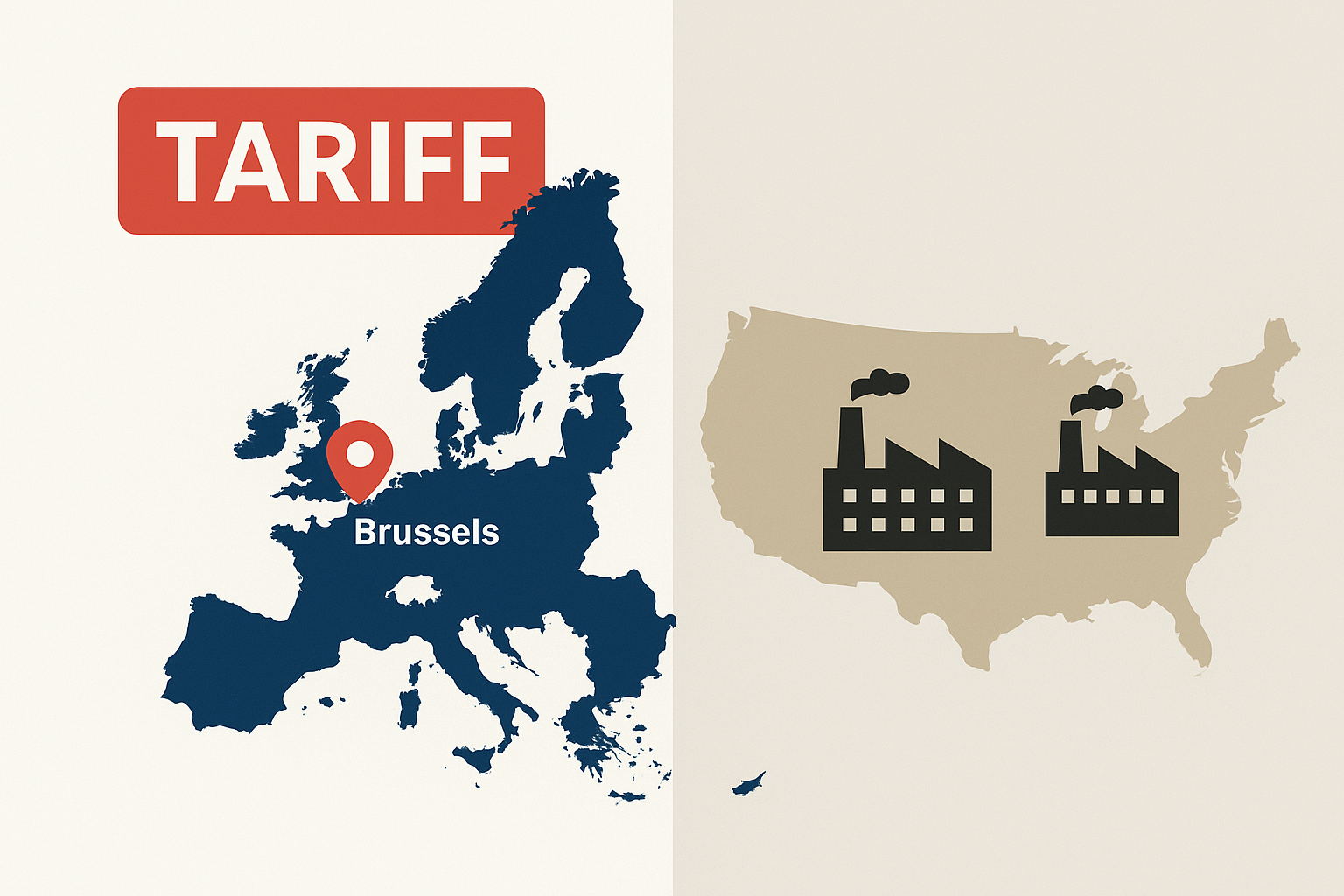1. Brussels Doesn’t Speak for Every European Manufacturer
European Union trade policy is dictated by Brussels, not individual member states. This centralized system often overlooks the economic diversity and individual challenges within Europe itself. In contrast, U.S. trade policy must protect all American workers and industries, not favor one region over another.
By imposing a 50% tariff, the U.S. can finally counterbalance a system where small European economies are swept into blanket trade deals that disproportionately benefit larger players.
2. European Imports Are Propped Up by Government Subsidies
European manufacturers benefit from:
- Generous subsidies
- Complex tax structures
- Regulatory exemptions that don’t apply to U.S. competitors
These are not signs of a more efficient market — they’re engineered advantages. A 50% tariff restores balance and forces competition based on innovation and efficiency, not politics.
3. A Tariff Empowers U.S. Manufacturing Growth
Here’s the truth: U.S. manufacturers can compete — but not when the deck is stacked. With a strong tariff in place, domestic producers of steel, electronics, auto parts, and heavy machinery will gain immediate market share. This leads to:
- More domestic production
- Higher-paying jobs
- Increased investment in U.S.-based operations
Every dollar spent on American-made goods circulates through our economy, creating a multiplier effect that supports local communities, small businesses, and families.
4. Resilience Through Self-Reliance
The pandemic exposed a dangerous truth: America depends too much on foreign supply chains. From PPE to semiconductors, we learned the hard way that we need to bring critical manufacturing back home. European supply chains are just as vulnerable to global shocks, and sometimes even the cause of them.
A 50% tariff helps us future-proof essential industries and reduces national vulnerabilities.
5. Innovation Begins at Home
When U.S. companies are shielded from foreign underpricing, they can afford to invest in the future. Tariffs incentivize research, next-generation manufacturing, and smart automation. That’s how we reclaim leadership in global production — not through cost-cutting, but through world-class innovation.
6. Tariffs Are About Fairness — Not Isolationism
This isn’t a call to close our borders. It’s a call to stand up for fairness. Europe has long enjoyed open access to U.S. markets without offering the same advantages in return. A strong tariff policy isn’t about going backward — it’s about making sure trade is mutually beneficial.
By setting clear boundaries, we protect our workers, our industries, and our sovereignty in a complex global economy dominated by bureaucratic mega-structures.
Conclusion: A Strategic Path Forward
A 50% tariff on European goods isn’t about isolation. It’s about restoration. It sends a message: The United States will no longer sacrifice its industrial base in the name of one-sided globalism.
If we want to revitalize American manufacturing, protect our jobs, and spark a new era of innovation, this is how we start.
It’s time to stop playing defense. Let’s invest in smart, bold trade policies that put American industry first.

